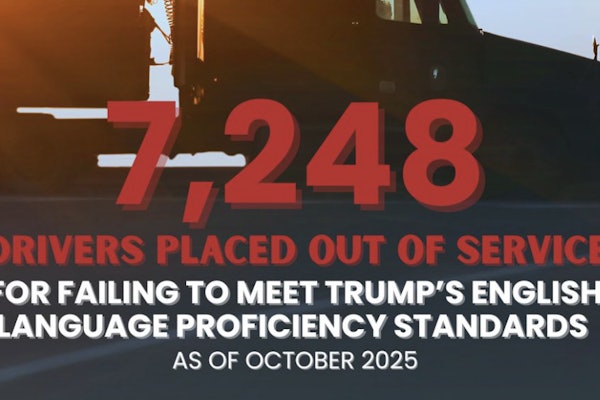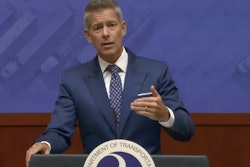The 26-member Entry Level Driver Training Advisory Committee (ELDTAC) began proceedings Thursday, Feb. 26 with its first meeting in Arlington, Va., taking on the task to negotiate the terms of a proposed rulemaking for pre-CDL entry-level driver training requirements.
More than 20 years have passed since the Federal Motor Carrier Safety Administration (FMCSA) was originally tasked by Congress with developing some form of training requirements. The agency is also already well beyond the October 2013 Final Rule deadline set by the 2012 MAP-21 highway bill.
June 15 is the committee’s self-imposed deadline to finalize and submit a report to FMCSA – “a very, very, very, very ambitious time frame,” said the committee’s facilitator, Richard Parker of the University of Connecticut Law School.
He referenced a previous, highly technical four-month negotiated rulemaking he’d headed up for a different agency. “We didn’t reach [unanimous] consensus,” he said, which is significant given the DOT has pledged to use any unanimous final term sheet as the basis for a rule proposal but only to consider one with dissenting views.
FMCSA Associate Administrator Larry Minor, also a committee member, was upbeat about the prospects of meeting the timeline, given what he viewed as a seeming unanimity on, at least, the need for some entry-level standards. Four more meetings of the committee are scheduled for the next few months: March 19-20, April 9-10 and 23-24, and May 14-15 and 28-29.
Up to three dissenting votes on the final product were named by the committee in rules negotiations this morning as acceptable consensus for the final product, with member owner-operator Bryan Spoon insisting that dissenters’ views also be reflected in the final report. “If consensus is reached on something,” he said, “that dissent [should] go up to the Administrator” along with the consensus view.
“There’s a sweet spot here,” said Parker during committee rules-of-the-road negotiations. “Requiring unanimity allows individuals to sandbag the process, but the more you water down consensus,” the less persuasive the final product will be.
“By the same token the definition of guaranteed failure is trying to please everybody,” noted David Owen of the National Association of Small Trucking Companies.
The effort the committee will put forth over the next three months will certainly be significant. Members of the ELDTAC, representing truck, bus, public safety advocacy, driver training, law enforcement and regulatory communities. The committee’s final product, noted Parker, will outline in detail what should be in the training rule “with supporting analysis” of why the variety of options were chosen. Likewise, cost-benefit analysis supporting the rule would be a necessary, elemental part of the deliberations as well.












